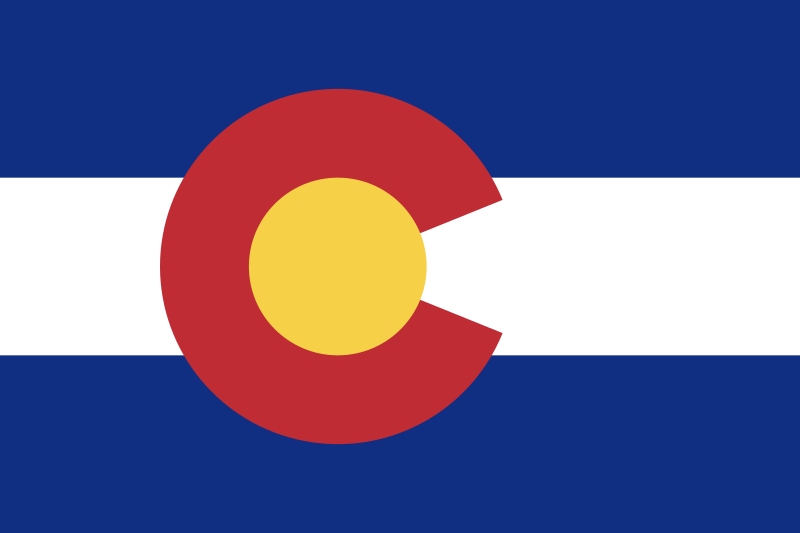The Colorado Secretary of State announced on August 31 that Initiative 19 concerning custodial funds qualified for the ballot, which means voters will decide three statewide initiatives on November 2, 2021.
Initiative 19 would transfer the power to appropriate custodial funds from the state treasurer to the state legislature. Custodial funds are state revenue not generated through taxes, such as pension funds and court-approved settlement funds. The measure defines custodial money as money received by the state that (1) originated from a source other than the State of Colorado, (b) was awarded or provided to the state for a particular purpose, and (c) that the state is acting as a custodian or trustee to carry out the purpose for which the funds were provided.
The initiative would create the Custodial Fund Transparency Account within the Department of the Treasury. The account would receive all custodial funds and the general assembly would be responsible for appropriating the funds for purposes as specified by law "on an equitable basis for the benefit of the state." Funds appropriated from the account would be appropriated in a public hearing with opportunities for public comment. Custodial funds, including interest revenue on the funds, would be retained and spent as a voter-approved revenue change and would be exempt from revenue and spending limitations under TABOR.
The Committee for Spending Transparency is leading the campaign in support of the initiative. Michael Fields, Executive Director of Colorado Rising Action, is the initiative's sponsor and the registered agent for the committee. The committee reported $1.275 million in contributions from Unite for Colorado.
Michael Fields said, "I think [Initiative 19 was] relevant this year because of all the COVID money the governor spent, the money he’s getting from companies to hire staff and the settlements coming into the AG’s office. The legislature should be deciding how to spend that. There is always extra money in there, and it sits in the bank for a very long time, gathering interest. Millions get spent how they want."
The secretary of state used a random sampling to project that, of the 195,911 signatures submitted by proponents, 135,601 were valid. To qualify, 124,632 signatures needed to be valid. Since the measure proposes to amend the state constitution, signatures from two percent of the registered voters from each of the state's 35 senate districts were also required.
Measures that can go on the ballot during odd years in Colorado are limited to topics that concern taxes or state fiscal matters arising under TABOR, the Taxpayer's Bill of Rights (Section 20 of Article X of the Colorado Constitution). This requirement was added to state law in 1994.
Measures that can go on odd-year election ballots include
- measures proposing new taxes,
- tax increases,
- an extension of taxes,
- tax policy changes resulting in a net tax revenue gain,
- changes to revenue or fiscal obligations,
- delays in voting on ballot issues, and
- approval for the state to retain and spend state revenues that otherwise would be refunded for exceeding an estimate included in the ballot information booklet.
The last time an initiative appeared on an odd-year ballot in Colorado was in 2013. The measure, which was defeated, would have changed Colorado’s flat personal income tax rate to a graduated income rate with increased rates.
The deadline to submit signatures for initiatives targeting the November 2021 ballot was Aug. 2. Campaigns for two other initiatives submitted signatures by that deadline. Both were certified for the ballot: the Creation of Out-of-School Education Program and Marijuana Sales Tax Increase Initiative (#25) and the Reduce Property Tax Rates and Retain $25 Million in TABOR Surplus Revenue Initiative (#27). Colorado Rising Action also sponsored Initiative 27.
According to campaign finance reports covering information through July 28, 2021, committees supporting the three measures raised a combined total of $3.31 million. Unite for Colorado gave 100% of the funds—a total of $2.15 million—raised by Cut Property Taxes (supporting Initiative 25) and The Committee for Spending Transparency (supporting Initiative 19). Learning Opportunities for Colorado's Kids (LEAP 4 Co), which is backing Initiative #25, raised $1.61 million from Gary Community Investment Company ($948,250) and Ready Colorado ($200,000). The deadline for the next scheduled reports is September 7, 2021
From 2016 through 2020, successful initiative petition drives in Colorado cost an average of about $850,000, ranging from volunteer efforts to $2.2 million.
In 2020, eight initiatives appeared on the ballot in Colorado. Campaigns supporting the measures received an average of $3.36 million in support contributions and $2.49 million in opposition contributions. Campaigns supporting and opposing the eight initiatives on the 2020 ballot reported a combined total of $46.8 million in contributions.



